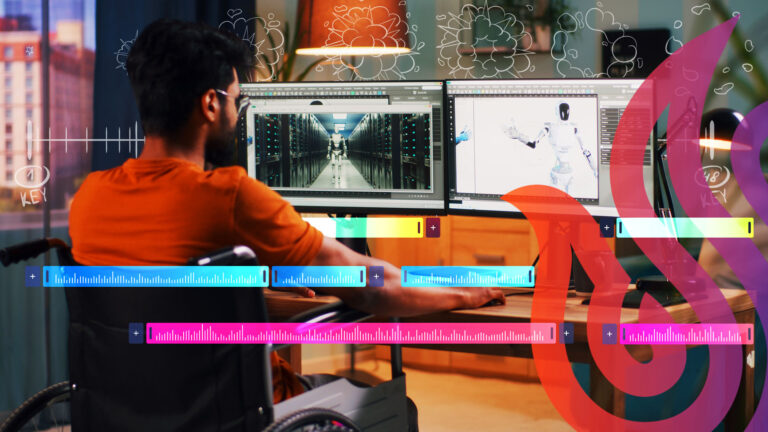As the world moves deeper into the information age, adults of all ages are looking into STEM careers. Whether you are a young student just starting out or someone who’s considering a career change, a computer science degree opens up a range of opportunities. Computer science is a wide and diverse field with applications in finance, academia, commerce, and industry.
The ideal computer science education involves more than just studying theory. Graduates are aided by practical knowledge passed on by teachers and professionals with hands-on, real-world experience. Further experience is gained through labs and student-to-student collaborations. This provides opportunities that are designed to beat the old “prior experience necessary” dilemma faced by recent graduates.
What it Takes to Become a Computer Professional
There’s a sense, possibly supported by portrayals in movies and on TV shows, of computer professionals as off-the-wall geniuses who exist in some rarefied environment where they talk and think in code that only other geeks can understand.
While there may be some truth to that in certain quarters, and love of coding is very much an impetus to pursuing a career in computer science, there’s a place for those with a computer science degree in nearly every industry and sector. Extroverts who love to work with people will find a home just as easily as the introvert who prefers the solace of tackling challenges in a production environment.
The ideal candidate for a computer science-related career is someone who has:
- A degree in computer science
- Good oral and written communication skills
- Attention to detail
- A keen sense of aesthetics and user behavior
- A collaborative mindset
- Good organizational skills
- Project and customer management skills
- Analytical/critical thinking skills
- Decision-making capabilities
- Knowledge of web development software
- Knowledge of computer and networking systems
- Knowledge of computer and internet programming languages
Top 6 Computer Science Careers
Since technology has developed deep roots in every industry, there’s a little something for anyone seeking a computer engineering career. In fact, it’s expected that many computer science-related positions will go unfilled this year. There simply aren’t enough qualified people to fill them. These are some of the top professions that will utilize the skills and knowledge gained while working toward a computer science degree. Six of the top computer science careers include software engineer, web and mobile developer, cyber security specialist, computer systems analyst, data scientist, and research analyst in academia.
Career #1: Software Engineering
For someone who wants to create the applications that power the world, software engineering would be an ideal career path. Qualified candidates can transition from design to production to maintenance and perfect the life cycle of computer applications.
In addition to learning how hardware and software power systems from the inside out, software engineers will know how to code in current computer programming languages like C++, HTML, Python, and JavaScript. A software engineer also recommends software upgrades, perform software maintenance, ultimately designing, testing and developing software. This is a great option for those who love programming and logic.
Employment forecast: Expected job growth for this position from 2018 to 2028 is 21 percent, according to the U.S. Bureau of Labor Statistics. The latest figures available for currently employed persons is over one million.
Career #2: Web and Mobile Development
The rate of mobile use is expected to outpace personal computers, and that means further opportunities for developing mobile apps for consumers and companies alike. Web and mobile developers are needed in nearly every industry, including marketing, retail, and publishing. The growth of eCommerce and digital branding also means job opportunities for web developers, web design, and software engineering.
Those interested in pursuing this line of work should focus on the fine points of coding and courses that stress software engineering, applications development, and software or systems testing.
Employment forecast: The growth expectation for this career path from 2018 to 2028 is 13 percent, according to the U.S. Bureau of Labor Statistics. There are, however, many web developers working as freelancers or independent contractors. Currently, there are many openings in this occupation.
Career #3: Cyber Security Specialist
This is one of the fastest growing and most sensitive occupations in the realm of computer science. It can also be the most lucrative, and with good reason. Opportunities range from in-house computer security officer to freelance ethical hacker.
A cyber security specialist makes sure that computer systems and networks remain safe from exploitation, data leaks, and internal threats by monitoring and pen-testing systems. As a consultant, a computer security specialist would test and evaluate networks and applications and make recommendations for security strategies, changes, and upgrades.
In addition to a degree in computer science, cyber security specialists need certifications such as CISSP and CEH. The candidate must have some industry-related experience and knowledge of system architecture and networking systems, programming languages, and paradigms. Continued education and tracking cyber-crime trends and methods is important. Knowledge of security testing systems and protocols like BeEF, Metasploit, and w3af as well as hacking methods and psychology are also essential.
Employment forecast: This occupation has a substantial growth outlook of 32 percent from 2018 to 2028, according to the U.S. Bureau of Labor Statistics. On average, there are over one hundred thousand employees in cyber security annually, plus a need for consultants.
Career #4: Computer Systems Analyst
The job of a systems analyst is to design or evaluate a company’s computer and networking systems and make recommendations for changes. The goal is to increase corporate efficiency and become an in-house computer manager or work as a freelancer.
This occupation requires good people and communication skills in addition to technical knowledge, organizational skill, and prior work experience. The minimum educational requirement is a degree in computer science. Ideal candidates also maintain ongoing education to keep up with technological trends and cutting-edge solutions.
Employment forecast: Jobs in this field are expected to grow at a rate of 9 percent from 2018 to 2028, according to the U.S. Bureau of Labor Statistics.
Career #5: Data Scientist
Those looking for a fast-growing field with wide applications over a range of industries might consider going into Machine Learning (ML) technology and data science. This is where Artificial Intelligence (AI) and the Internet of Things (IoT) development come in, and these applications are advancing rapidly.
Candidates can work independently or as part of a team developing new technologies and finding innovative ways to use existing tech. Minimum educational requirements are a degree in computer science with a concentration in Data Science and some industry-specific experience. Knowledge of programming languages, various development tools, and software tools like Tableau that are used to visualize data and conduct experiments is also helpful.
Good communication skills, organization, critical thinking, and problem solving are soft skills that will take applicants far in this field.
Employment forecast: Data science is expected to grow at the rate of 16 percent from 2018 to 2028, according to the U.S. Bureau of Labor Statistics. That figure is expected to change as artificial intelligence and machine learning become more common and essential.
Career #6: Research Analyst/Academic
Computer-related jobs in academia range from professors to researchers. This is an excellent choice for someone who is passionate about technology and loves to share that passion and knowledge with others. Candidates could find employment at private or public schools, universities, community colleges, research facilities, and tech centers.
Employment forecast: The outlook in this field is expected to grow16 percent from 2018 to 2028.
The Bottom Line
The realms of computer science and information technology form the basis for careers in a growing field that will continue to generate demand. What it takes to get there is determination combined with a well-rounded education that includes honing soft skills and gaining specific technical knowledge.
With the range and breadth of available opportunities, it shouldn’t be difficult for any personality type to find a satisfying job with a lot of potential for growth and advancement.
Did learning what you can do with a degree in computer science interest you? University of Silicon Valley does far more than just introduce you to theory. Our comprehensive Computer Science & Engineering degree programs are taught by entrepreneurs who are in the thick of the industry. You’ll connect with amazing engineering school faculty from major industry players like NASA and Magic Leap. University of Silicon Valley offers you the unique chance to collaborate with other smart people on interdisciplinary, real-world projects—before you even graduate from University of Silicon Valley.
University of Silicon Valley is uniquely poised to offer a meaningful and valuable education for 21st century students. We believe in an education that directly correlates with the work you’ll be doing after you graduate. Interested in learning more? Contact Us today.


